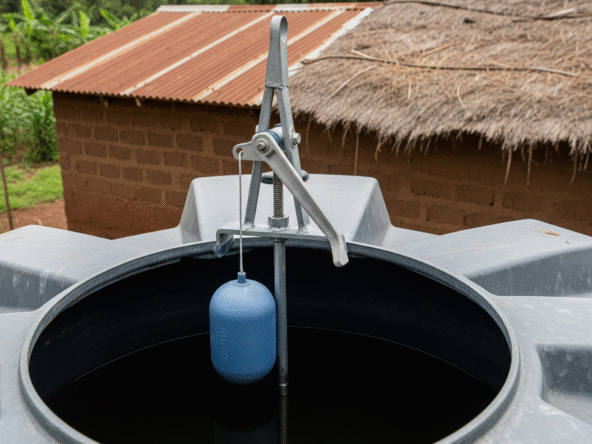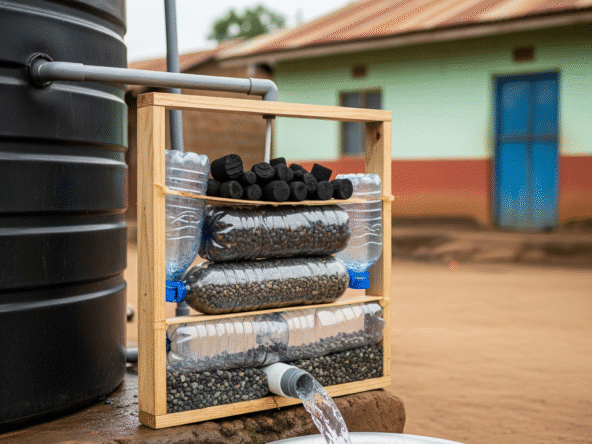In Kenya’s expanding peri-urban and rural regions, mobile water trailer setups are proving to be an essential solution for flexible water delivery. Whether you’re distributing water to construction sites, remote farms, or operating a small-scale water vending business, a mobile setup allows you to deliver water efficiently without relying on fixed infrastructure.
This comprehensive guide breaks down everything you need to know from selecting tank sizes to trailer safety, pumps, and legal requirements to help you build or invest in a reliable water trailer system.
1. What Is a Mobile Water Trailer?
A mobile water trailer is a movable water transport system, typically mounted on a metal chassis with wheels and pulled by a vehicle. It is designed to carry water and distribute it through built-in hoses, taps, or pumps.
Key uses include:
- Supplying water to construction and building sites
- Distributing water to farms and greenhouses
- Delivering domestic water in estates without piped supply
- Selling water in rural towns and satellite towns
The basic structure includes:
- A durable plastic or steel tank
- A trailer frame with tires and axle
- A water pump (manual or petrol-powered)
- Distribution hoses, taps, and valves
For more on decentralized supply setups, see Off-Grid Water Planning for Farms in Kenya.
2. Choosing the Right Tank Size for Mobility
Selecting the right tank capacity is crucial. You’ll need to balance volume, weight, and vehicle strength to avoid damage or inefficiency.
| Tank Size | Ideal Use Case | Suitable Vehicle |
|---|---|---|
| 500 litres | Domestic water, small deliveries | Tuk-tuk, light trailer |
| 1000 litres | Small farm irrigation, water vending | Pick-up truck, SUV |
| 2000 litres | Bulk delivery, medium farm support | 1-ton truck, double axle |
| 5000 litres | Large-scale supply, community distribution | Tractor or lorry |
Learn more about tank brands and features in Top Water Tank Brands in Kenya.
You may also find these guides helpful:
3. Essential Components for a Mobile Water Trailer Setup
A well-functioning trailer setup includes:
- Tank: Choose from plastic (lightweight), IBC (modular), or steel (heavy-duty)
- Trailer frame: Fabricated with steel, fitted with a drawbar, springs, and durable tires
- Water pump: Typically a petrol-powered pump for faster discharge
- Hose system: Includes a delivery pipe, valves, and nozzle
- Safety features: Brake lights, reflectors, anti-surge chains
- Optional filtration unit: To improve water quality, especially if selling water
For efficient refill at farms, see Solar-Powered Water Pumps for Rural Tanks
4. Legal and Safety Guidelines in Kenya
If your trailer is used on public roads or for business, you must meet national and county requirements:
Key regulations:
- Trailer registration with NTSA if exceeding 750kg
- Fit functional brake lights, reflectors, and indicators
- Ensure tank is securely mounted to the frame
- Always carry a fire extinguisher and first aid kit
- Obtain county business permits if engaging in water resale
5. Refill Options for Mobile Units
You can refill your water trailer from various sources, depending on the purpose:
- Private boreholes
- Community taps or tanks
- Water pans and rivers (filtered)
- Storage yards using linked tanks – See Multi-Tank Linking Systems
If operating in gravity zones, a Gravity-Fed Tank Setup can be used for fast discharge from the trailer without needing a pump.
6. Maintenance and Longevity Tips
Proper maintenance keeps your trailer running smoothly and prolongs its lifespan:
- Lubricate axles and inspect tires weekly
- Flush tank monthly to prevent algae and biofilm—follow tips in Tank Cleaning Guide
- Check pump oil levels and clean air filters regularly
- Replace cracked hosepipes and loose fittings
- For steel tanks, consider repainting to prevent corrosion
7. Cost Breakdown: What to Budget For
Below is an approximate budget for a 1000–2000 litre mobile water trailer:
| Component | Estimated Cost (KES) |
|---|---|
| 1000-litre plastic tank | 10,000 – 14,000 |
| Trailer frame (fabricated) | 35,000 – 60,000 |
| Petrol water pump | 12,000 – 25,000 |
| Plumbing & hose components | 3,000 – 5,000 |
| Optional filtration system | 5,000 – 10,000 |
| Total Estimated Cost | 60,000 – 110,000+ |
For automated trailer systems (with float switches or timers), see:
Tank Refill Automation Using Float Switches
Also consider reviewing tank sizing needs here:
How to Size Your Water Tank Based on Household Water Use
Mobile water trailer systems offer unmatched convenience for water distribution in areas with unreliable supply. Whether you are a small-scale farmer, contractor, or rural water vendor, a customized trailer setup can reduce delivery times, expand service coverage, and serve as a backup during dry spells.
By combining durable tanks, efficient pumps, and proper maintenance, these systems can serve your business or household reliably for years.


